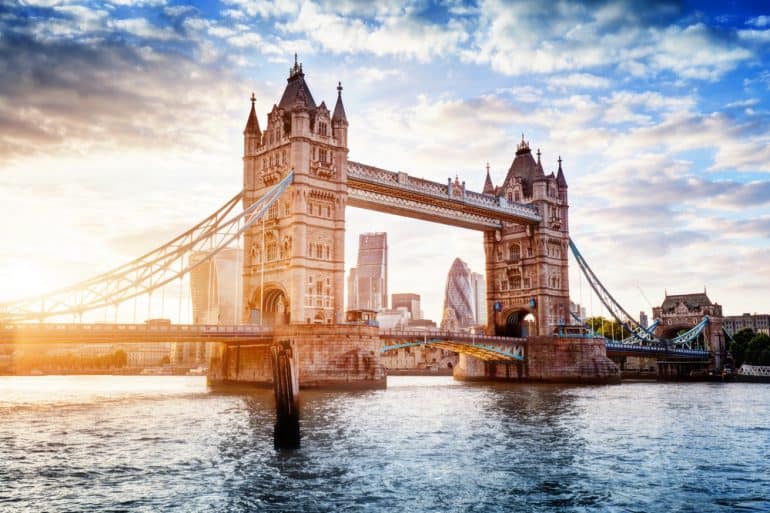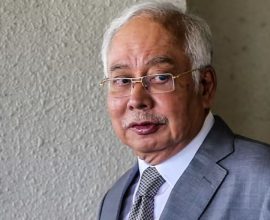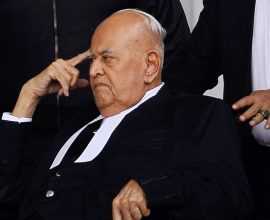Can the courts stop a prime minister from suspending Parliament? [Part-2 of 2: What the Supreme Court said, and Why]
We saw in Part-1 of 2, the problems that beset the UK when it chose to leave the EU. Prime Minister Boris Johnson suspended Parliament because he wanted a Brexit ‘with no deal’. The Supreme Court ruled that the prorogation had been unlawful. Why did it say so? And what is so important about the decision? Read on …
[PART 2 OF 2]: RESOLUTION
We saw, in Part 1 of 2, (see here) Boris Johnson’s controversial decision to prorogue Parliament. We will now see what the Supreme Court said about that– and why – and what consequences this will have for the next, say, 500 years…
The Supreme Court had several answers to the Government’s objections
The Supreme Court accepted that while it cannot consider political questions,1Paragraph 31 it pointed out that legal disputes over the conduct of politicians can be – and have been– scrutinised by the courts.
‘Almost all important decisions made by the executive have a political hue to them’, said the court. ‘[For] centuries’, noted the Supreme Court, ‘the courts have exercised a supervisory jurisdiction over the decisions of the executive.’2Paragraph 31
For e.g., in 1611, the courts had ruled that the monarch could not change the law merely using his prerogative powers.3Case of Proclamations, supra
In 1765 the courts had stopped the Secretary of State from ordering the search of private properties without any authority within the common law or a right conferred by an act of Parliament.4Entick v. Carrington (1765) 19 State Tr 1029; 2 Wils KB 271
Just because the PM was accountable to Parliament did not mean the courts had lost their role. That did not make him ‘immune from legal accountability to the courts’.5Ibid
If the effect of prorogation was to prevent Parliament from doing its job – i.e. asking the PM to be accountable before it – it would mean ‘closing the stable door after the horse had bolted.’6Paragraph 33, p.13
‘Ministerial responsibility’, said the court, ‘is no substitute for judicial review’.7citing R v. Secretary of Satte or Home Department, Ex p Fire Brigades Union [1995] 2 AC 513, 572-573; Wade and Forsyth, Administrative Law, 7th ed (1994) p 34
The pivotal test, said the Court, was one stated by Lord Diplock – the central government is answerable to two bodies:
For their efficiency and policy, to Parliament; for the lawfulness of what it does, to the court of justice.8See paragraph 33, where the Supreme Court adopted Lord Diplock’s pronouncement in R v. Inland Revenue Comrs, Ex P National Federation of Self-employed and Small Businesses Ltd [1982] AC 617, 644: ‘[Officers of central government departments ] … are accountable to Parliament for what they do so far as regards efficiency and policy, and of that Parliament is the only judge; they are responsible to a court of justice for the lawfulness of what they do, and of that the court is only judge.
Third, said the court, its intervention at this point was not a breach of the separation of powers but one in aid of it: by ensuring that the Government does not use the power of prorogation unlawfully, … the court would be ‘giving effect to the separation of powers’.9Paragraph 34
So, the court answered the first question in the affirmative.
Q-2: How far could the Prime Minister go, before the courts would stop him?
The real question before the court was – what were the limits of the Prime Minister’s (or the government’s) power?
The court accepted that when the Government exercises its powers, some of its actions could be challenged, while others could not.
How could it decide when to intervene, and when not to?
Whether a prerogative power could be used, depended on the nature and subject matter of the power
In 1985, the House of Lords had concluded that whether a prerogative power could be challenged in court would depend on what the power was used for.
Disputes relating to, e.g. national security, or the dissolution of Parliament were not matters that could be challenged in court.10Council of Civil Service Unions v. Minister for the Civil Service [1985] AC 374, p. 418, per Lord Roskill. Other matters of concern were, e.g., defence of the nation, the making of treaties, or the appoint of ministers
Parliamentary supremacy and the Duty to be accountable to Parliament
The Court explained when – and how – it would intervene.
Parliament – the House of Commons is the Chief Authority of State
Parliament is a body composed in two chambers: The House of Commons and the House of Lords. The Commons is an elected assembly. Because of this, it enjoys a dominant influence in Parliament.11 Erskine May, Parliamentary Practice, 24 Ed., [2011], Chapter 11: ‘Power and Jurisdiction of Parliament’.[/mfn] ‘Let us remind ourselves of the foundations of our constitution. We live in a representative democracy. The House of Commons exists because the people have elected its members. The Government is not directly elected by the people (unlike the position in some other democracies). The Government exists because it has the confidence of the House of Commons. It has no democratic legitimacy other than that. This means that it is accountable to the House of Commons – and indeed to the House of Lords – for its actions, remembering always that the actual task of governing is for the executive and not for Parliament or the courts.’11Paragraphs 41 and 55
This is how the Supreme Court explained the twin concepts that upheld Westminster democracy – Parliamentary supremacy, and accountability of –and to – Parliament.
It said, simply, and lucidly: –
‘The Government is not directly elected by the people. The Government exists because it has the confidence of the House of Commons.
The court relied on what Lord Bingham had said in 2006:
‘… the conduct of government by a Prime Minister and Cabinet collectively responsible and accountable to Parliament lies at the heart of Westminster democracy’.12Paragraph 46, quoting Lord Bingham in Bobb v Manning [2006] UKPC 22, para 13;
The power to prorogue is limited by law
The court ruled that the use of prerogative power is limited by the law.13Meaning, ‘statute and the common law, including, in the present context, the constitutional principles with which it would otherwise conflict’: see paragraph 4. Also see paragraph 41
So, if the Government frustrates Parliament’s supreme powers by the misuse of its Executive Prerogative – it then steps outside the limits of its prerogative powers.
Two Further Questions
It seems, even then, the court may choose not to intervene. Something more had to be shown to the court. To explain what those were, the court asked itself two further questions.
[1]: ‘What was the effect of the exercise of the prerogative powers?’
[2]: ‘Was there reasonable justification for such an exercise?’
If the prerogative power is used to prevent or frustrate Parliament – without reasonable justification – to carry out its constitutional functions (to make laws, to supervise the Government – to hold the executive responsible, to have the Government explain itself to Parliament) – then that exercise of power is both unconstitutional and unlawful.
The ‘Effect’ Question – Did the prorogation have the effect of frustrating Parliament from carrying out its constitutional duties?
The Court was not interested in the motive of the Prime Minister (that would be hard to determine)14Paragraphs 53 and 58
It was far more concerned with something it could measure: the effect of such a prorogation.15Paragraph 53
It explained the effect of the prorogation on Parliament in this way:
When the case came to be filed, the circumstances, said the court, ‘were quite exceptional’.16Paragraph 57
‘A fundamental change was due to take place in the Constitution of the United Kingdom on 31st October 2019.’ 17Ibid
The court felt that,
‘…the House of Commons, as the democratically elected representatives of the people, has a right to have a voice in how that change comes about is indisputable.’18Ibid
Parliament had passed an Act stipulating the Brexit mechanism.19The European Union (Withdrawal) (No 2) Act 2019 Under that Act, ‘it is especially important’, said the court, that the PM, ‘be ready to face the House of Commons.’
If the PM was allowed to prorogue it, Parliament could not do its duty, because, ‘It prevented Parliament from carrying out its constitutional role for five out of a possible eight weeks…’ 20Paragraph 56 Parliament could not debate Brexit with an Agreement or, if it was necessary, a No Deal Brexit.
In conclusion, all the judges found that,
‘The effect (of the prorogation) on the fundamentals of our democracy was extreme’.21Paragraph 58
Was there reasonable justification for the prorogation?
The judges explained how they would assess the Government’s justification.
The court said it would grant a great deal of latitude to the Government.22Ibid. The court felt that it must be sensitive to the responsibilities and experience of the prime minister, [Paragraph 51] and that it should proceed with caution.
The court examined if there was in fact any justification offered.
‘No justification’, said the court, ‘for taking action with such an extreme effect has been put before the court.’ 23Paragraph 61
The only evidence had been one Nikki da Costa’s memorandum of 15th August. She is the Director of the Legislative Affairs in the Prime Minister’s Office.
Da Costa had explained that the 6-week hiatus would have given the Government enough time to prepare the Queen’s Speech.
Her memorandum, said the court,
‘…did not explain why it was necessary to bring Parliamentary business to a halt for 5 weeks before, when the normal period necessary to prepare for the Queen’s Speech is 4 to 6 days.24Paragraph 55
The PM did not seem to have consulted an array of elected representatives before deciding to advise the Queen to prorogue Parliament. The MPs were ‘informed of it’ only after the monarch had approved the PM’s decision.
The court concluded that,
‘It is impossible for us to conclude, on the evidence which has been put before us, that there was any reason – let alone a good reason – to advise Her Majesty to prorogue Parliament for five weeks…’25 Para 61
What orders could the court make?
Gina Miller, and the Scottish MPs, had asked that the court ‘declare’ that the ‘advice given’ to the monarch ‘had been unlawful’.
The judges went further.
They asked themselves: if the PM’s advice had been unlawful, what effect did that have?
When the Monarch’s Order (to prorogue Parliament) was conveyed by the Commissioners of the Crown into the House of Lords – to the Lords and the MPs there gathered – said the court – it was as if the Commissioners had carried a blank sheet of paper.
That missive could convey nothing: Parliament was never prorogued.
So, it was still ‘in session’, and could go about its business.
It did. On Wednesday, 25 September 2019, at 11.00 a.m. Parliament resumed for business.
Parliament is prorogued by a body outside of it – odd, is it not?
The odd thing in all of this is, because of tradition, this so-called ‘Supreme Body’, Parliament – cannot even decide when it is to open, when it can take a break or when it is to be suspended or dissolved.
It is the Prime Minister who has the authority to make that decision.
The books describe the monarch’s role in this as a ‘mere formality’. Yet it is said that the power to advise the Queen to prorogue is the Prime Minister’s ‘prerogative’ – an ancient legal right of office.
The prime minister is not one directly elected into that position by the people.
Yet, by the use of his ancient ‘prerogative powers’, a prime minister could hold an entire assemblage of elected representatives at bay. Is that not odd?
Prerogative powers are creatures of the common law. They came into being hundreds of years ago and were used as feudal tools in a time far different from today.
Their continued existence and exploitation have increasingly come under the courts’ scrutiny.
It is the arbitrary exercise of prerogative power that has seen so much mayhem in the political system.
We have seen how one individual has exploited a historical formality to mount a frontal assault on the independence of Parliament.
‘Perhaps it is now time to either bury prerogative powers altogether, or to assemble such powers under a single statutory scheme.
And the Prime Minister has indicated that he will prorogue Parliament – again
And Mr. Johnson has indicated, not a few hours ago, that he intends to prorogue Parliament – again.26https://www.independent.co.uk/news/uk/politics/boris-johnson-suspend-parliament-prorogue-queens-speech-brexit-a9133381.html?utm_medium=Social&utm_source=Facebook#Echobox=1570037709
This should bring about interesting results.
What is important is this: what if Parliament now makes a law that Parliament is not to be prorogued without the consent of the House of Commons?
But that is the subject for another day!
The court can protect institutions from the excesses of the Government
The Miller case demonstrates that the court can – and will – intervene and question the exercise of the Government’s Power, even if that exercise of power was over what appears to be a political matter.
What a friend said
A friend sent a WhatsApp message on 24 September 2019, shortly after the court had announced the decision:
‘Isn’t it awesome? British politics may be c — p, but at least we still have the Rule of Law’.
That just about summed up the general feeling.
We’re Too close to history to appreciate the consequences of the Miller Judgement
We are too close to history to judge the vast significance of this case, or the strength, the unwavering resolve and the unity of purpose of these eleven Supreme Court judges.
Alone and unaided, they stepped into the searing light and set the law, and a nation, on its true course.
Yet, I am sure of one thing: what these judges decided here will, for hundreds of years after this, uphold constitutional law, and protect the best principles of democracy, wherever and whenever they are threatened.
[The author expresses his gratitude to Mr. Andrew Newton, Ms KN Geetha, Miss Shalini Ragunath, Mr. GS Saran, Mr. JP Kirat, and Miss KP Kasturi].





